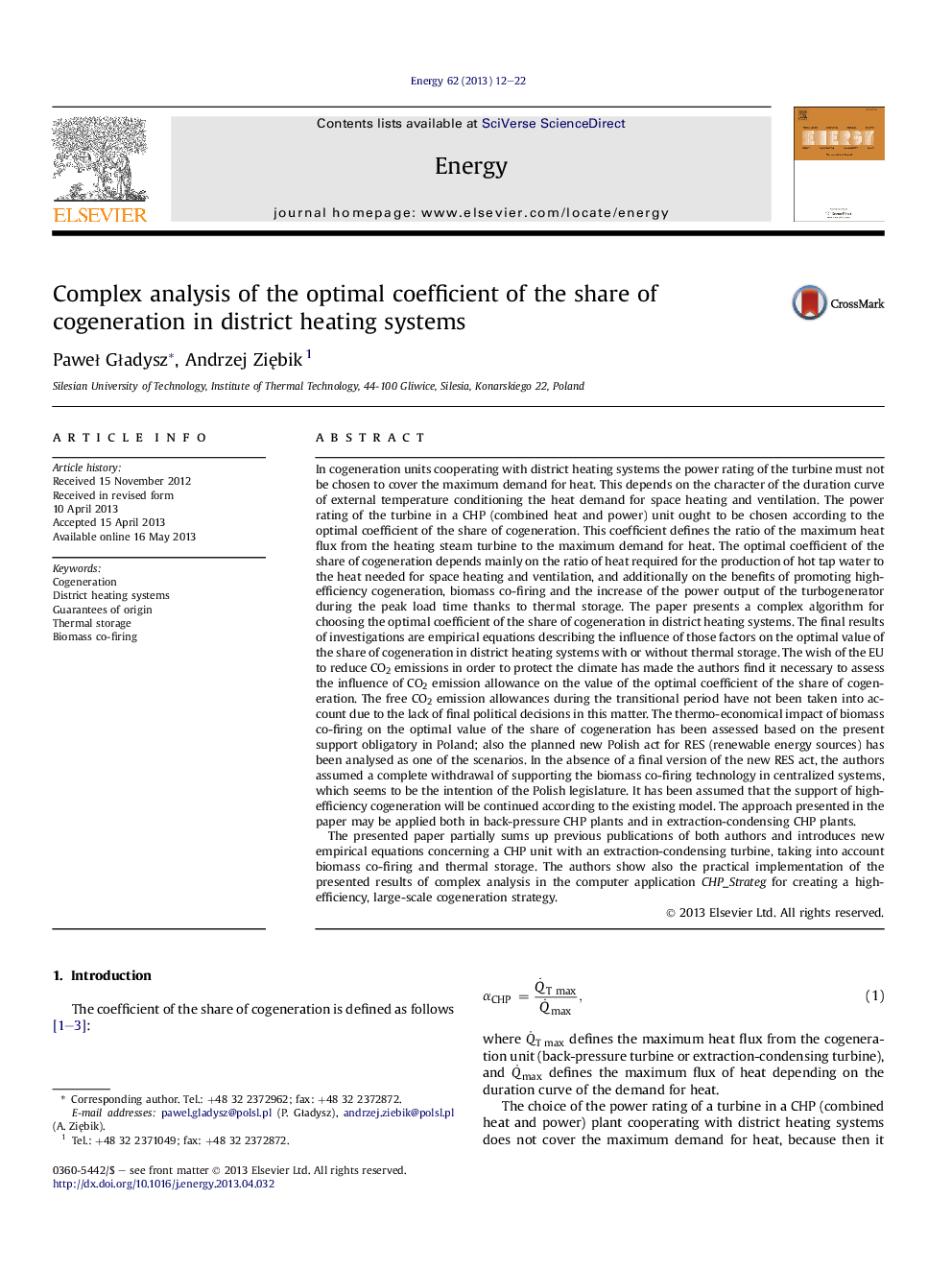| کد مقاله | کد نشریه | سال انتشار | مقاله انگلیسی | نسخه تمام متن |
|---|---|---|---|---|
| 1732733 | 1521484 | 2013 | 11 صفحه PDF | دانلود رایگان |

• Development of district heating with CHP as an issue in the developing countries.
• The high-efficiency cogeneration and renewable energy sources in modern CHP units.
• The application of thermal storage – increasing the share of CHP.
• The increasing share of heat for the production of hot tap water in DHS.
• A new extended optimization algorithm and practical guidance are needed.
In cogeneration units cooperating with district heating systems the power rating of the turbine must not be chosen to cover the maximum demand for heat. This depends on the character of the duration curve of external temperature conditioning the heat demand for space heating and ventilation. The power rating of the turbine in a CHP (combined heat and power) unit ought to be chosen according to the optimal coefficient of the share of cogeneration. This coefficient defines the ratio of the maximum heat flux from the heating steam turbine to the maximum demand for heat. The optimal coefficient of the share of cogeneration depends mainly on the ratio of heat required for the production of hot tap water to the heat needed for space heating and ventilation, and additionally on the benefits of promoting high-efficiency cogeneration, biomass co-firing and the increase of the power output of the turbogenerator during the peak load time thanks to thermal storage. The paper presents a complex algorithm for choosing the optimal coefficient of the share of cogeneration in district heating systems. The final results of investigations are empirical equations describing the influence of those factors on the optimal value of the share of cogeneration in district heating systems with or without thermal storage. The wish of the EU to reduce CO2 emissions in order to protect the climate has made the authors find it necessary to assess the influence of CO2 emission allowance on the value of the optimal coefficient of the share of cogeneration. The free CO2 emission allowances during the transitional period have not been taken into account due to the lack of final political decisions in this matter. The thermo-economical impact of biomass co-firing on the optimal value of the share of cogeneration has been assessed based on the present support obligatory in Poland; also the planned new Polish act for RES (renewable energy sources) has been analysed as one of the scenarios. In the absence of a final version of the new RES act, the authors assumed a complete withdrawal of supporting the biomass co-firing technology in centralized systems, which seems to be the intention of the Polish legislature. It has been assumed that the support of high-efficiency cogeneration will be continued according to the existing model. The approach presented in the paper may be applied both in back-pressure CHP plants and in extraction-condensing CHP plants.The presented paper partially sums up previous publications of both authors and introduces new empirical equations concerning a CHP unit with an extraction-condensing turbine, taking into account biomass co-firing and thermal storage. The authors show also the practical implementation of the presented results of complex analysis in the computer application CHP_Strateg for creating a high-efficiency, large-scale cogeneration strategy.
Journal: Energy - Volume 62, 1 December 2013, Pages 12–22